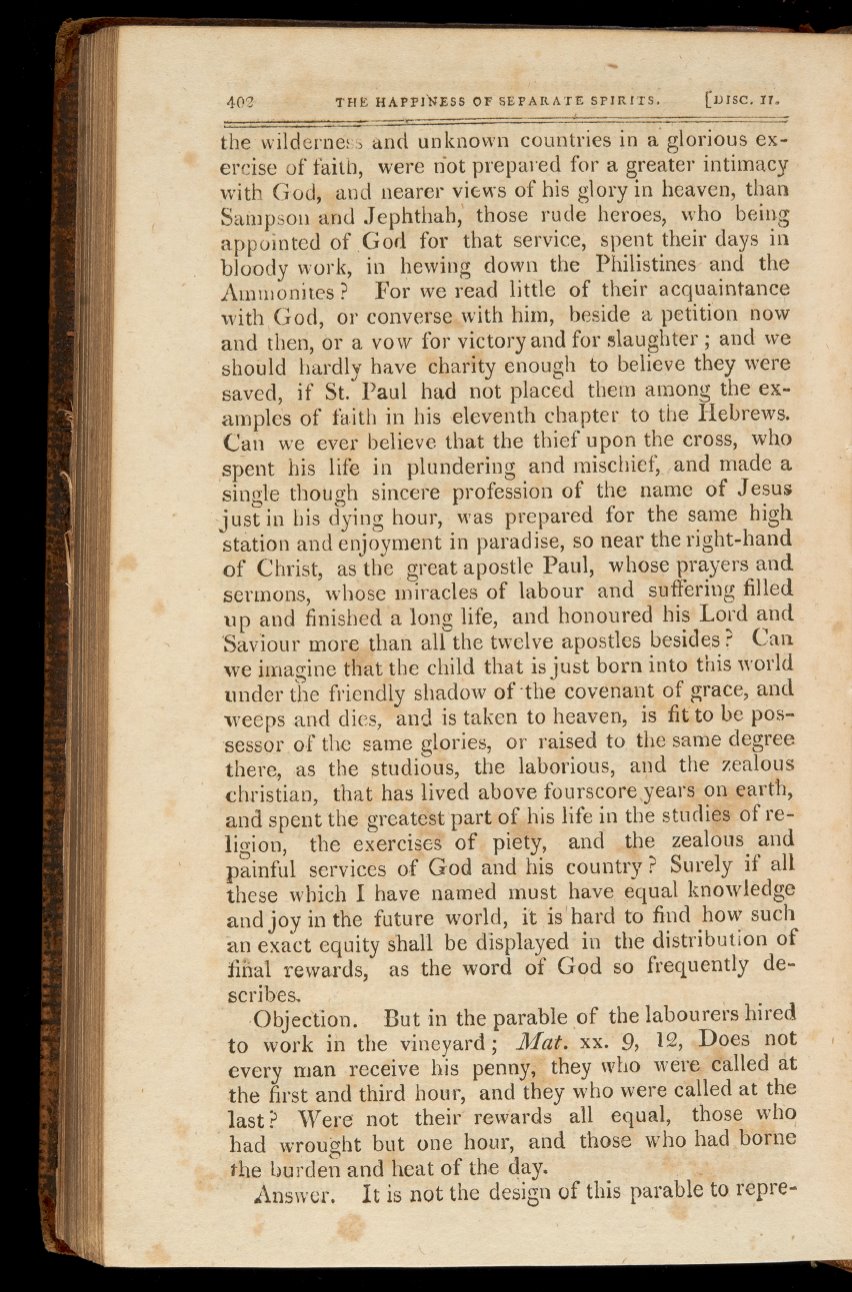

402
THE
HAPPIZSESS OF
SEPARATE
SPIRITS.
(DISC.
Ii.
the
wilderne:, and
unknown countries
in
a glorious
ex-
ercise of
faith, were
riot
prepared
for
a greater intimacy
with God, and
nearer
views
of
his
glory in heaven,
than
Sampson and
Jephthah;
those
rude
heroes,
who
being
appointed of
.God
for
that
service,
spent
their days
in
bloody
work, in
hewing down the
Philistines
and
the
Ammonites
?
For
we
read little
of
their acquaintance
with
God, or
converse
with him, beside
a petition
now
and
then,
or a
vow for
victory and for
slaughter
;
and
we
should hardly have charity enough to
believe
they were
saved,
if
St.
Paul
had
not placed
them among
the ex-
amples
of
faith in
his
eleventh
chapter
to
the Hebrews.
Can
we
ever believe
that
the
thief
upon the
cross, who
.spent
his life
in
plundering and
mischief,
and made
a
single though sincere profession
of
the name
of Jesus
just
in his
dying hour,
was
prepared
for the
same high
station and enjoyment
in
paradise,
so
near
the
right-hand
of
Christ,
as
the
great apostle Paul,
whose
prayers
and
sermons,
whose
miracles of
labour
and
suffering filled
up
and finished
a
long
life,
and honoured
his
Lord and
Saviour
more than all the
twelve
apostles
besides
?
Can
we
imagine
that
the child
that
is
just
born into
this world
under
the friendly shadow
of
-the
covenant of
grace,
and
weeps
and
dies,
and
is
taken
to heaven,
is
fit to
be
pos-
sessor
of
the same glories,
or raised
to the same
degree
there,
as
the
studious, the laborious, and the zealous
christian,
that
has lived
above fourscore,years
on
earth,
and spent the greatest
part of
his life
in
the studies
of re-
ligion,
the exercises
of
piety,
and the
zealous
and
painful
services
of God
and
his
country
?
Surely
if
all
these
which
I
have
named must
have.
knowledge
and
joy
in
the
future
world,
it
is
hard
to find how such
án exact
equity shall be displayed in
the distribution
of
filial
rewards,
as
the word
of God
so
frequently de-
scribes.
Objection. But
in
the
parable
of
the labourers
hired
to
work
in
the vineyard
;
Mat.
xx.
9,
12,
Does
not
every
man
receive
his penny, they who
were called
at
the
first and third hour, and they
who
were called
at the
last
?
Were
not
their
rewards
all
equal,
those who
had
wrought but
one hour,
and those
who had
borne
the burden and heat
of
the day.
Answer.
It
is
not
the
design
of
this
parable
to
repre-

















